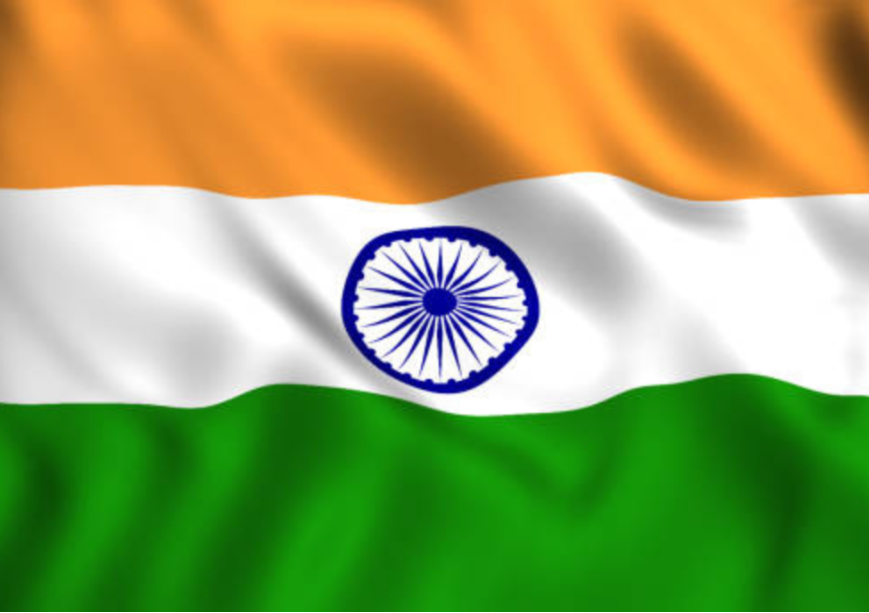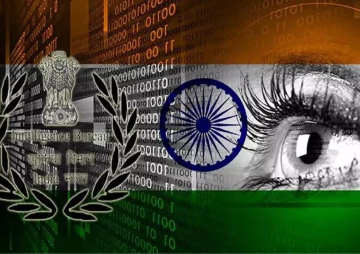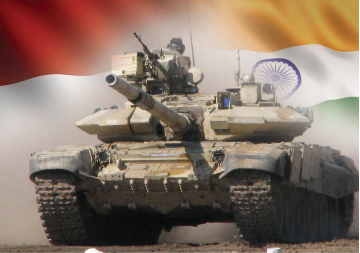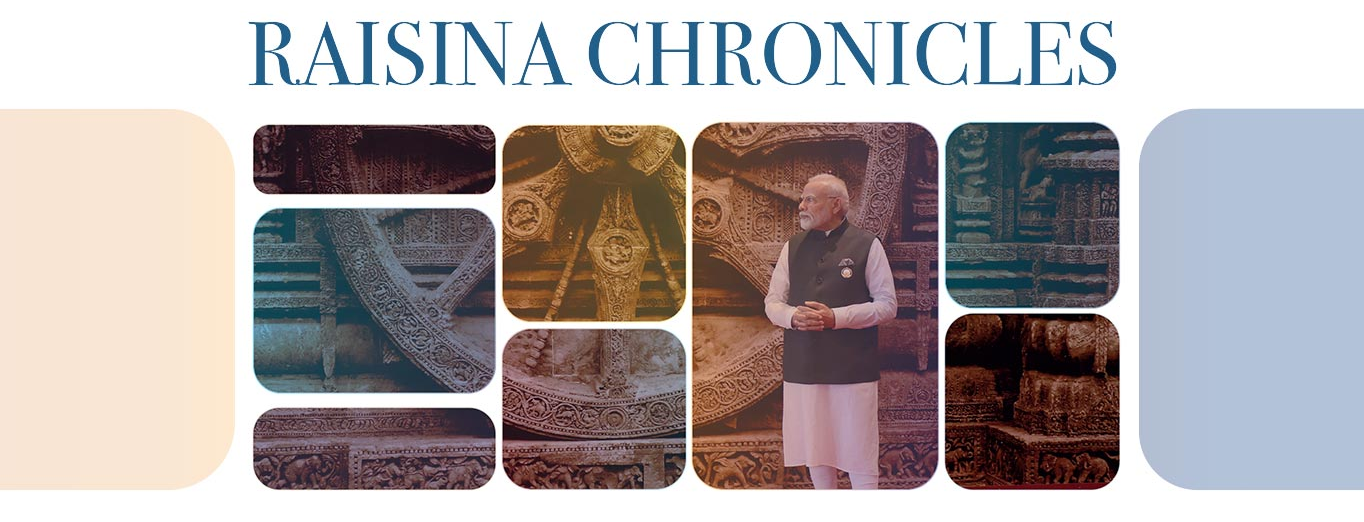
This article is a part of the series - Raisina Chronicles 2024
I had the privilege to participate in the 2023 edition of the Raisina Dialogue, and I truly enjoyed the dynamic and diverse panels and side events which provided a valuable platform to discuss the most pressing contemporary challenges. Such opportunities are extremely important since they bring together leaders and public figures from many different spheres—from politics and economics, to science and civil society. To really have meaningful and innovative discussions, it is imperative to step outside our narrow professional bubbles, to look for fresh ideas, solutions, and expertise, to get new experiences, and to put your own thinking into a different perspective.
I had visited India privately several times before participating in the Raisina Dialogue. My official visit simply confirmed my private experience—India welcomes its guests with open arms, embraces them with its warmth, and enriches them with the exchange of views at every level, be it in a conversation with a taxi driver on the crowded streets of Indian cities or with the ministers, academics, and businesspeople at a renowned international conference.
At the 2023 Raisina Dialogue, our discussions were held under the title Provocation, Uncertainty, Turbulence: Lighthouse in the Tempest?, one that, much to my regret, most accurately reflects the current state of affairs in the international community. I believe that we all share a feeling of anxiety and insecurity, a feeling that so many things are getting out of control and that the world as we used to know it is somehow crumbling all around us.
At the 2023 Raisina Dialogue, our discussions were held under the title Provocation, Uncertainty, Turbulence: Lighthouse in the Tempest?, one that, much to my regret, most accurately reflects the current state of affairs in the international community.
The foundations of the international order, based on the United Nations (UN) Charter and international law, are shaking. The world today is increasingly complex and full of unprecedented challenges. The issues of peace and security, development, climate change and global warming, food and energy security, and pandemics are affecting us all throughout the world. There is no place in the world where one can hide and wait for these storms to pass.
Most of the challenges we are facing today or will likely face tomorrow are clearly human made. And here lies our common responsibility and duty towards future generations. We absolutely must approach overcoming these challenges with a positive mindset or at least cope with them to the best of our abilities. We must all contribute globally, meaningfully, and in the spirit of cooperation.
Most of the challenges we are facing today or will likely face tomorrow are clearly human made. And here lies our common responsibility and duty towards future generations. We absolutely must approach overcoming these challenges with a positive mindset or at least cope with them to the best of our abilities.
Against this backdrop, I was pleased to participate in two debates that focused on the role of the UN and the importance of effective multilateralism. Slovenia is a staunch advocate of effective multilateralism with the UN at its core and remains committed to the promotion of peace, dialogue, stability, and prosperity. Our future depends on international cooperation, mutual trust and the respect of norms set out in the UN Charter and international law.
To be sure, there is a strong need for more effective multilateral governance, including in terms of how the UN works. The UN system needs to get fit for the current challenges and, as such, requires reforms to perform better, more efficiently, and transparently. This is something we must tackle together.
The UN system needs to get fit for the current challenges and, as such, requires reforms to perform better, more efficiently, and transparently. This is something we must tackle together.
Like the Bled Strategic Foruma that Slovenia hosts annually, the Raisina Dialogue offers interactions and exchanges with leaders, thinkers, and opinion-makers from around the world. These exchanges are indispensable in addressing and finding solutions to the challenges across the board.
For example, science, technology, and innovation have a pivotal role in achieving progress for our societies and humanity at large. They are key to pushing forward the 2030 Agenda. The transition to a green, low-carbon economy is inconceivable without new technologies, as is an effective fight against climate change. Political goals and commitments will not be enough; it is imperative we support and embrace advances in science.
I was also delighted to participate in the Raisina Young Fellows debate regarding the type of leadership that is needed in times of instability and polarisation. In my belief, the leadership that we all need—nationally and internationally—should respect mutually agreed rules and norms. It should be humble, show solidarity and promote equal opportunities. It should embrace the future in terms of technology and youth. Above all, it should always have the political will to achieve progress.
Including young people in our deliberations and decision-making processes is of vital importance. The young are our future; their numbers are growing, and so are their needs in terms of health, education, security and, above all, a perspective of a life of prosperity and dignity.
We should also never ignore the young generation’s ideas, no matter how futuristic they sound. We should not ignore the huge political and societal potential the young have. They are powerful enough to change national political processes or bring issues to the top of the international agenda. Climate change is a prime example of this.
In the same context of inclusiveness and equality, it was important to see many influential female leaders included in the Raisina Dialogue debates. It is sad that we must point out again and again that girls and women, who make up half of the global population, need to have their rights respected and their equality promoted. Half of the global population still needs to be empowered. We need to unleash the immense potential of women and ensure their equal participation at all levels in economics, society, science, and politics.
India has been at the forefront of international efforts to address and search for solutions to the problems of today’s world. Its endeavours to build a bridge between the needs of developing countries and the developed ones during its G20 Presidency have been well noted and welcomed by Slovenia. They have also been prominently reflected in the Raisina Dialogue debates.
The slogan of India’s G20 Presidency, ‘One Earth. One Family. One Future’, corresponds well with the slogan that Slovenia chose for its campaign for non-permanent membership in the UN Security Council (2024–25), ‘Building Trust. Securing Future’.
As a country with genuine interest in world affairs and with a commitment to be a reliable partner, a fair player, and an honest broker, Slovenia will continue to have a constructive and close dialogue with India. We have a rich bilateral agenda and a regular high-level political dialogue, and we pursue many new avenues in business, science, technology, and global cooperation.
The fact that both countries share the values of democracy, human rights, respect for international law, and effective multilateralism, and are similarly striving for a world that is secure, peaceful, and prosperous, fills me with optimism.
I am pleased that the Raisina Dialogue has contributed another valuable piece to the mosaic of our bilateral relations: the partnership between the Observer Research Foundation (ORF) and the Bled Strategic Forum (BSF). India’s External Affairs Minister S. Jaishankar was among the key guests at the BSF in 2021 and, since then, the partnership between ORF and BSF has been a highly valued part of our bilateral cooperation. Both institutions actively participate in organising a joint panel (one in New Delhi and one in Bled), exchanging moderators, and working together to attract prominent, interesting, and relevant panellists. Moreover, they provide an opportunity for young leaders to participate in deliberations.
There are so many challenges in today’s world that demand credible answers and quick reactions. That is why forums such as Raisina Dialogue are so important; they encourage frank, constructive and expert debate. Only such an exchange of views can bring us to think ‘outside the box’, venture down unknown roads, and find innovative solutions.
Please read the full volume here.
The views expressed above belong to the author(s). ORF research and analyses now available on Telegram! Click here to access our curated content — blogs, longforms and interviews.




 PREV
PREV



